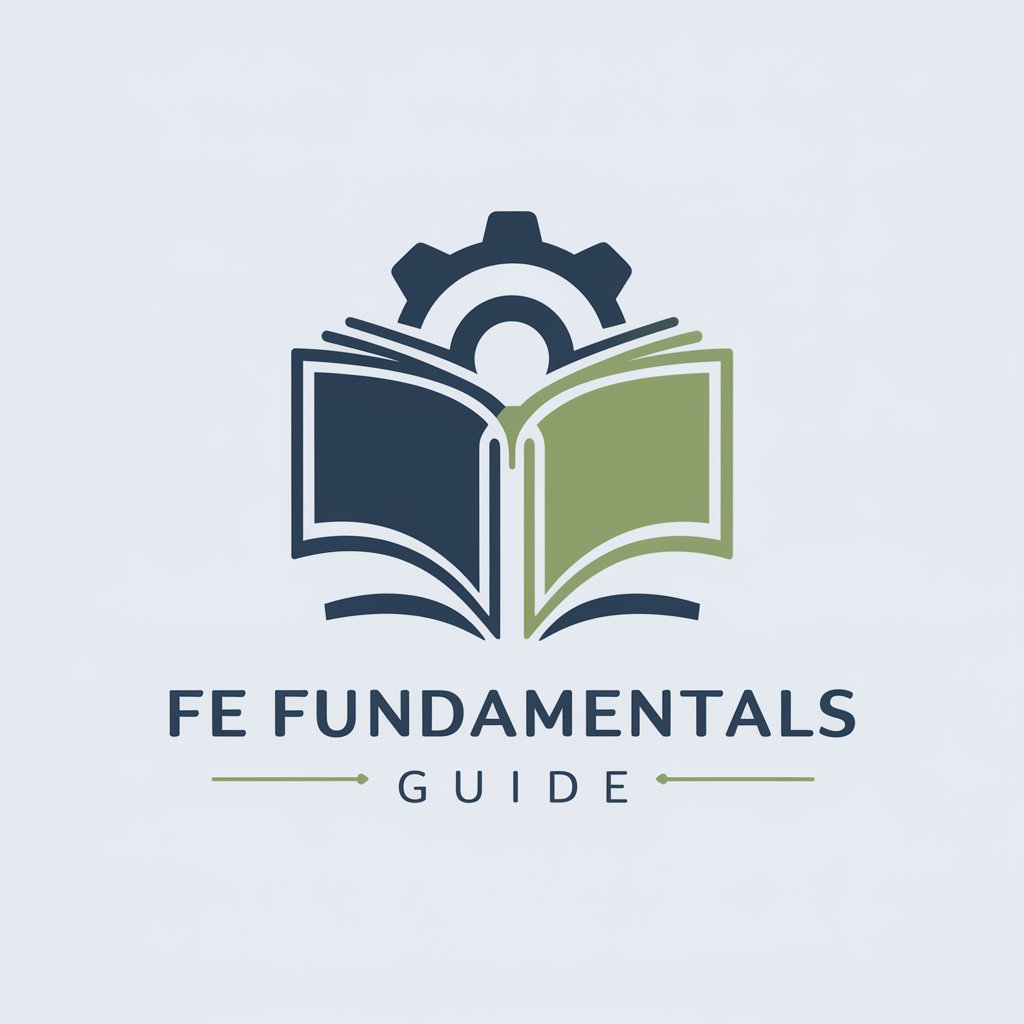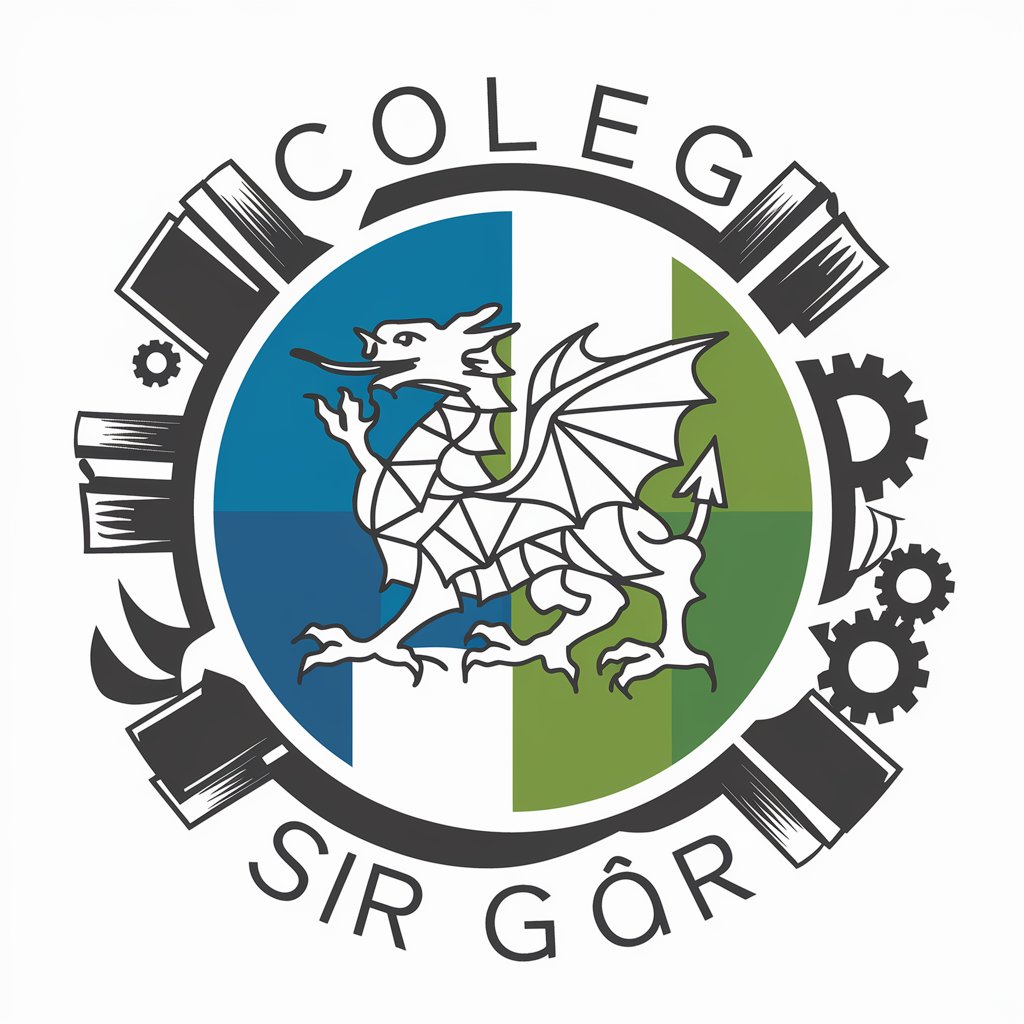
FE Fundamentals Guide - Engineering Exam Prep

Welcome! Let's dive into engineering together.
AI-powered engineering study companion
Explain the principles of thermodynamics as they apply to engineering systems.
How does fluid mechanics relate to heat transfer in practical applications?
What are the key considerations for ensuring safety and health in engineering projects?
Discuss the importance of understanding material properties in engineering design.
Get Embed Code
Introduction to FE Fundamentals Guide
FE Fundamentals Guide is a specialized tool designed to assist users in preparing for the Fundamentals of Engineering (FE) Other (General) Exam, a critical step for aspiring engineers. This guide covers a wide range of topics essential for the exam, including Heat Transfer, Thermodynamics, Fluid Mechanics, Materials Properties and Processing, Mechanics of Materials, Dynamics, Kinematics, Vibrations, Electricity and Magnetism, Engineering Economics, Statics, Safety, Health, Environment, Engineering Ethics and Societal Impacts, Chemistry, Mathematics, and the newly added Measurements, Instrumentation, and Controls. It provides comprehensive educational support through detailed explanations, examples, and practice questions. For instance, when discussing Thermodynamics, it might illustrate the principles of energy conservation using real-world applications like refrigeration cycles or power plant operations, aiding in the deep understanding of such complex subjects. Powered by ChatGPT-4o。

Main Functions of FE Fundamentals Guide
Comprehensive Topic Coverage
Example
Explaining the first law of thermodynamics through practical examples like a piston-cylinder device.
Scenario
A user struggling with the concept of energy conservation and work interactions in thermodynamic systems.
Practice Questions and Solutions
Example
Offering practice questions on fluid mechanics, followed by detailed step-by-step solutions.
Scenario
An individual preparing for the FE exam requires additional practice in fluid dynamics, specifically in understanding Bernoulli's equation and its applications.
Real-World Applications and Examples
Example
Describing the process of galvanic corrosion in metals and its prevention, relevant for the Materials Properties and Processing section.
Scenario
A student needs to understand corrosion mechanisms for both the FE exam and practical engineering applications.
Interactive Guidance and Support
Example
Providing feedback on common mistakes made in solving kinematics problems, with tips for improvement.
Scenario
A user seeks clarification on motion problems involving variable acceleration, looking for strategies to avoid errors.
Ideal Users of FE Fundamentals Guide Services
Engineering Students
Undergraduate and graduate engineering students who are preparing to take the FE exam will find this guide invaluable for review and practice. It helps bridge any gaps in their understanding of fundamental engineering principles across various disciplines.
Professional Engineers
Engineers looking to get licensed or seeking a refresher on fundamental engineering concepts can utilize this guide. It's particularly useful for those who have been out of school for a while and need to reacquaint themselves with academic principles.
Engineering Educators
Instructors and professors can use this guide as a supplemental resource to enhance their teaching materials, providing students with additional examples, practice problems, and explanations to aid in understanding complex engineering topics.
Self-Learners
Individuals who are self-studying for the FE exam, either because they are transitioning from a non-engineering field or simply prefer a self-directed study approach, will benefit from the structured and comprehensive nature of the guide.

How to Use FE Fundamentals Guide
Start Your Journey
Begin by visiting yeschat.ai for a complimentary trial, accessible without the need for a login or subscription to ChatGPT Plus.
Identify Your Needs
Determine the specific areas within the FE Fundamentals Guide you need assistance with, such as Measurements, Instrumentation, Controls, or any other engineering topic covered.
Engage with the Guide
Use the chat interface to ask specific questions related to your study needs, ensuring you mention the topic you're inquiring about for more targeted assistance.
Utilize Provided Resources
Take advantage of the links, detailed explanations, and practice questions provided by the guide to deepen your understanding of the topics.
Review and Repeat
Regularly review the information and practice the problems provided to solidify your understanding and prepare effectively for the FE exam.
Try other advanced and practical GPTs
Play Blackjack
Experience AI-Powered Blackjack Fun

AfriKnowBot: Truths of Africa
Empowering African knowledge with AI

WP FixerBot
Streamline Your WordPress Experience with AI

TourCraft & Travel Product AI
Crafting Future Travel Experiences

Interactive Chat Companion
Empowering conversations with AI creativity.

UltraMod Labs
Innovate and iterate with AI-powered engineering.

Doomsday Survival Advisor
AI-powered Doomsday Preparedness

Real Estate Scout
Unlocking Off-Market Real Estate Opportunities with AI

Genius IQ
Empowering Insights with AI

Vivid - Image Prompt Architect
Crafting Your Imagination with AI

Confidence Coach MindHacker.AI
Empower Your Mind, Boost Your Confidence

Language coach
Master languages with AI-powered precision.

FE Fundamentals Guide FAQs
What topics does FE Fundamentals Guide cover?
The guide covers a wide range of topics essential for the FE exam, including but not limited to Heat Transfer, Thermodynamics, Fluid Mechanics, Materials Properties, Mechanics of Materials, Dynamics, Kinematics, Vibrations, Electricity and Magnetism, Engineering Economics, Statics, Safety, Health, Environment, Engineering Ethics, Societal Impacts, Chemistry, Mathematics, Measurements, Instrumentation, and Controls.
Can FE Fundamentals Guide help with exam preparation?
Absolutely. The guide is designed to assist with comprehensive exam preparation, offering detailed explanations, practice questions, and tips for understanding complex engineering concepts, aiding in effective study and readiness for the FE exam.
Is prior knowledge required to use FE Fundamentals Guide effectively?
While prior knowledge of engineering concepts can be beneficial, the guide is structured to assist learners at various levels, including those re-engaging with academic studies, by providing accessible explanations and foundational insights into each topic.
How can I maximize my learning experience with FE Fundamentals Guide?
To maximize your learning, engage actively by asking specific questions, utilizing the provided resources for additional learning, and regularly reviewing and practicing the materials and problems provided to reinforce your understanding.
Are there any costs associated with using FE Fundamentals Guide?
FE Fundamentals Guide offers a free trial without the need for login or a ChatGPT Plus subscription, making it accessible to everyone. However, for continuous, unlimited access, users might explore any available subscription options.






